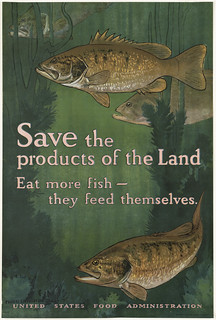Food Memories
Peeking over the counter top, I watched my father’s hands as he flipped through a cookbook and kneaded dough absentmindedly. The dry chalk of the flour coated his hands and the counter, rising into the air when slight breeze came through. My childhood is filled with many memories like these. My father worked nights and would babysit me during the day when my mother was at her job. A joke often told between my parents was, “Baby, baby, who's got baby?”. I was the tag along to all grocery store trips and to Half Price Books, conveniently located close to each other in the same strip of shopping mall. Inside, the shelves of the bookstore leaned up like giants. The colorful spines filling the spaces looked like teeth and the vanilla scent of old books pervaded the space.
My father collects cookbooks. Each one speaks of its own era, and good ones have thick pages and added notations like “needs more milk”. The ones now are new and slick with big photos, and never have food stains on them. Instead his favorites are local ones composed by women’s clubs with plastic spiral spines. A chocolate smudge on a favorite recipe, turned oily with time, will catch his attention faster than a hungry bloodhound. His favorite era of Joy of Cooking is the 60’s, and he will scour Amazon by ISBN number to get exactly what he’s looking for. The market for old cookbooks is growing again, part of the slow food revival movement in America.
No matter what anyone tell you, a lot of cookbook combing goes on in Goodwills. The dirtier and the nastier, the better. My mother has an inherent dislike of any thrift stores because of the perceived germs on every surface. Notice the conflict of interests already? When my mom was unfortunate enough to be kidnapped on trips like this, say on vacation, she would humor my father but never touch everything. My own love for cheap vintage clothes amused her, but I believe that was because clothes could be washed. A book was a bit harder to disinfect. Her breaking point hit one day, when it was so humid outside the interior widows of the store had condensation on them. She hid in the car with the A/C, and never really went treasure hunting with us again.
My parents continued their work schedules, his at night and hers during the day, but their hours got a lot longer. My mom would come home when it was dark, and my father would come back at eight in the morning sometimes. We had moved, and their commute increased, which left me to my own devices quite a bit during summer break. If I wanted to be fed, I had to do it myself. If I wanted my mom to eat, I had to make dinner as both parents were too tired to cook, though my dad could scrape together a breakfast for himself. I began digging through my dad’s library and sorted through cookbooks.
I had never really payed his collection any sort of attention before, because I was part of the online age of convenience and was used to pulling up what I wanted instantly. The theme, I noticed in retrospect, was dessert cookbooks. I had to throw up my hands then, because there was nothing I wanted to make unless I smothered myself with sweets. So I scraped together my memories of cooking classes my father made me go to as a child and taste memories of good meals. Fresh red snapper? Sure, with a raspberry vinaigrette sauce. Or chicken alfredo with once frozen green beans. American food. Easy to remember and make food. Things that could be added to a grocery list and be quickly bought.
Some nights my mom worked so late, and my dad had left for his job before dinner was made, I would put the leftovers into plastic tupperware. Part of cooking for another person is knowing their likes and dislikes. My mom hated mushrooms, and if I was feeling somewhat malicious about being left home all day, I would use cream of mushroom soup in the base ingredients.The best meal I made though was white wine braised pork chops, which took the least amount of attention because everything was left in the oven for two hours. Not that I was bitter about that, but effort did not always correlate to quality of meal.
When I went back to college, my cooking dropped off a cliff and my mother switched to frozen dinners. Wonder why American have large refrigerators? Convenience. My father has a Kenmore lay down one in the garage. Most families believe in having a few frozen emergency meals around as a time saver. If not meals, then out of season fruits, or large quantities of meat. We freeze bread in my house so it doesn't go stale or mold before we finish a loaf. The only other person I know to do this is my bachelor uncle. I’m sure there are jokes about times of famine somewhere in there and the use of stale bread.
I haven’t cooked in more than six months, and I know from experience my skills tend to deteriorate. Why make something terrible if you can buy something better? Money, which tends to be the universal answer. If you can’t make a cake, Duncan Hines is a good place to start. Yet look at America’s foodscape. We have everything from Chinese to Jamaican to Greek. Everyone is this culture is learning, whether about buying, eating or selling. The supply chain of consumerism rests on our stomachs and the choices we make. Dine out or eat in? 